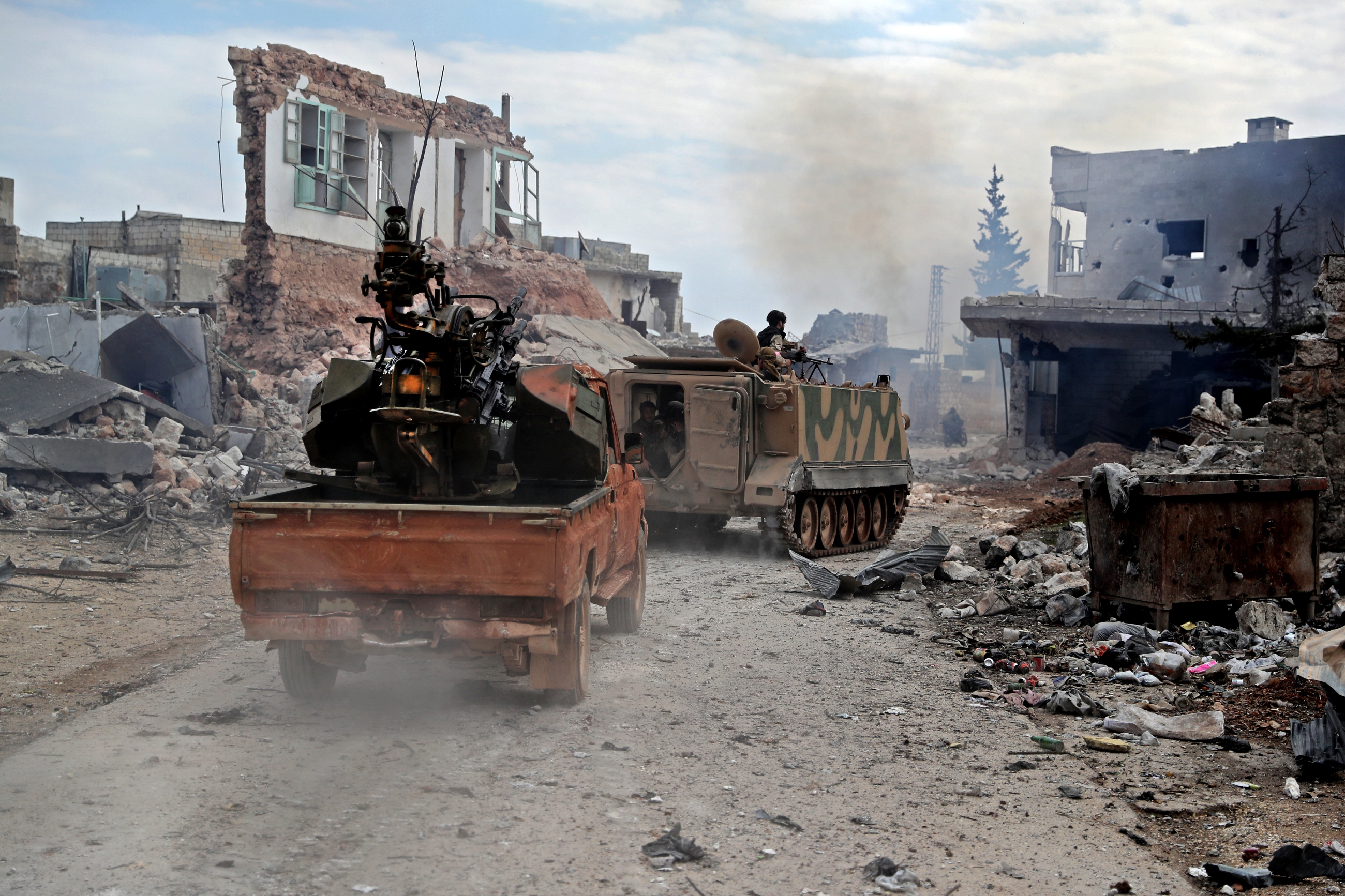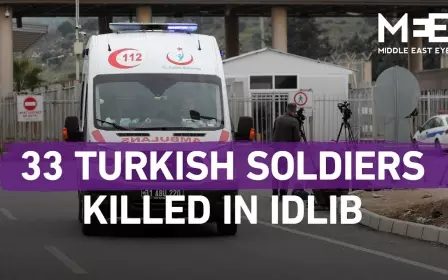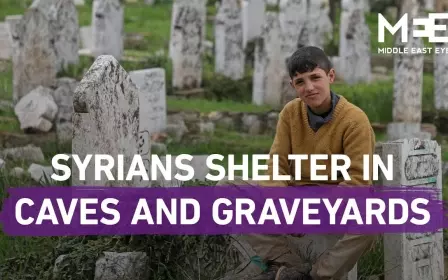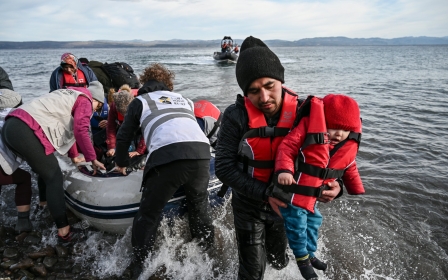Battle for Idlib: On the frontline with the fighters resisting Assad's assault

It’s 6:30am (04.00 GMT) and Syrian rebel forces are gearing up for an attack. There is a confident air about them as they now have a major regional power fighting with them. The Turkish military has intervened on their side to fight President Bashar al-Assad's forces in the nine-year-old war.
They are also buoyed because on Thursday rebels backed by Turkish forces retook Saraqeb, a strategic town in the northwest of Idlib province that sits at the crossroads of Syria’s main two highways. They did this in the face of heavy regime and Russian bombardment.
Days earlier, they recaptured Nairab, the first major rebel gain since the regime launched an offensive to take the last stronghold of rebel territory in the country in December.
Today they are preparing to attack the nearby town of Talhiyya and have set a meeting point so that personnel carriers, pick up trucks, and other transportation can carry the fighters to the frontlines.
Bearded men wearing green backpacks with RPG rounds sticking out speak of their determination to protect their families with whatever they have.
“Where are we going to go? Our families are in tents on the Turkish border. If we fail to stop Assad’s forces then what will happen to them?,” Abu Mustafa Suri told Middle East Eye, while standing next to his comrades all dressed in military fatigues.
“I send my kids Whatsapp messages all the time. They keep asking me when I am coming home. I just tell them that I’m working to keep the country safe and I’ll be home soon,” says another fighter carrying a mobile phone with a cracked screen.
Among them are fighters from the Turkish-backed National Liberation Front (al-Jabha al-Wataniya) as well as from Jaish al-Ahrar, another rebel faction made up of fighters formerly affiliated with Ahrar al-Sham.
This confident atmosphere is a recent development, however.
Just two weeks ago, pro-government forces were making lightening advances deep into the final rebel stronghold of Idlib and its surrounding areas.
The feeling among rebel fighters at the time was one of intense pressure as many of them had to straddle their time between being on the frontlines and securing their families who were forced to flee to other areas amid government advances. In total, nearly one million have fled conflict areas since December.
When asked about his feelings towards Turkey's involvement in the conflict, a member of a mobile heavy machine gun unit said: “Actually we are happy that they are involved. I don’t know how long it will last as Turkey is a little too close to Russia [who is an ally of Assad] but we are happy they are here. They have weapons we don’t have."
The plan is for Turkish forces to pound government positions and then rebel “Iqtihaam” (attack) units will storm the village.
After Turkish forces downed two helicopters in two weeks there is not a single helicopter in the skies above the battlefronts to be found. Government helicopters used to drop barrel bombs on rebel positions, killing scores. Rebels say this has made them more confident as at least one of the Syrian government's most feared weapons has been taken off the battlefields for the time being.
The helicopters used to fly too high for rebel weapons to be effective against them, until Turkish forces brought their shoulder-mounted anti-aircraft weapons to the fight.
The battle
As the battle begins, things go according to plan. Turkish forces have been weakening government positions all night. Rebels are ready to dispatch their attack forces from the gathering point to attempt to break into enemy front lines.
Several units take off in tan and green armoured personnel carriers travelling at high speed. Rebel fighters manage to advance and their fighters are inside the village exchanging Kalashnikov fire with government soldiers. The battle is early and already the rebels have killed a number of government fighters and even taken prisoner a Syrian army officer with the rank of first lieutenant.
'I don’t know how long it will last as Turkey is a little too close to Russia [who is an ally of Assad] but we are happy they are here.'
- Syrian rebel fighter
The rebels, meanwhile, have only sustained light injuries. The plan appears to be working despite the fierce bombardment from warplanes above the battlefield.
A problem then arises.
For some reason communication stops being effective. Rebel units are not coordinating their movements very well and they are unsure of the direction the battle is going.
A powerful air strike critically wounds two of their fighters.
As one of the rebels returns to base due to a shrapnel wound to his right hand, he raises his voice and says: “Why did the Turks stop firing? What’s going on?”
It later appears that a miscommunication between the Arabic speaking fighters and the Turkish speaking forces has slowed progress in the battle.
This is not a new problem, but it is one that will cause some hindrance in the campaign to retake territories recently lost to the government.
“The Turks are good fighters but it’s hard to communicate with them exactly what you need sometimes,” says Abu Hamza.
“Insha Allah (God Willing) we will figure it out."
Middle East Eye propose une couverture et une analyse indépendantes et incomparables du Moyen-Orient, de l’Afrique du Nord et d’autres régions du monde. Pour en savoir plus sur la reprise de ce contenu et les frais qui s’appliquent, veuillez remplir ce formulaire [en anglais]. Pour en savoir plus sur MEE, cliquez ici [en anglais].




